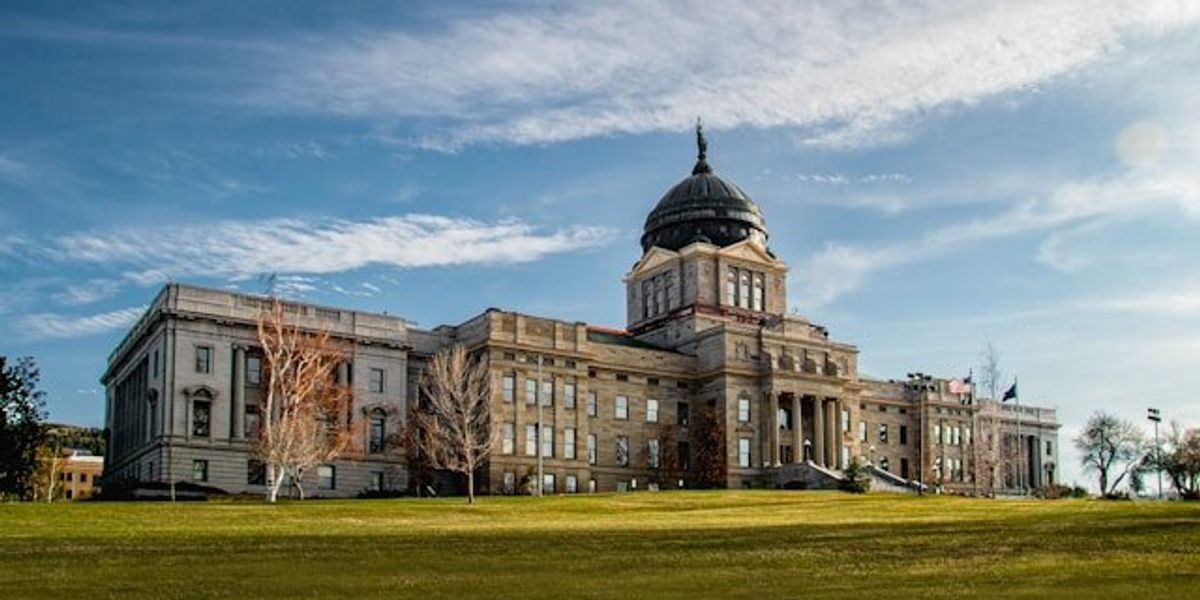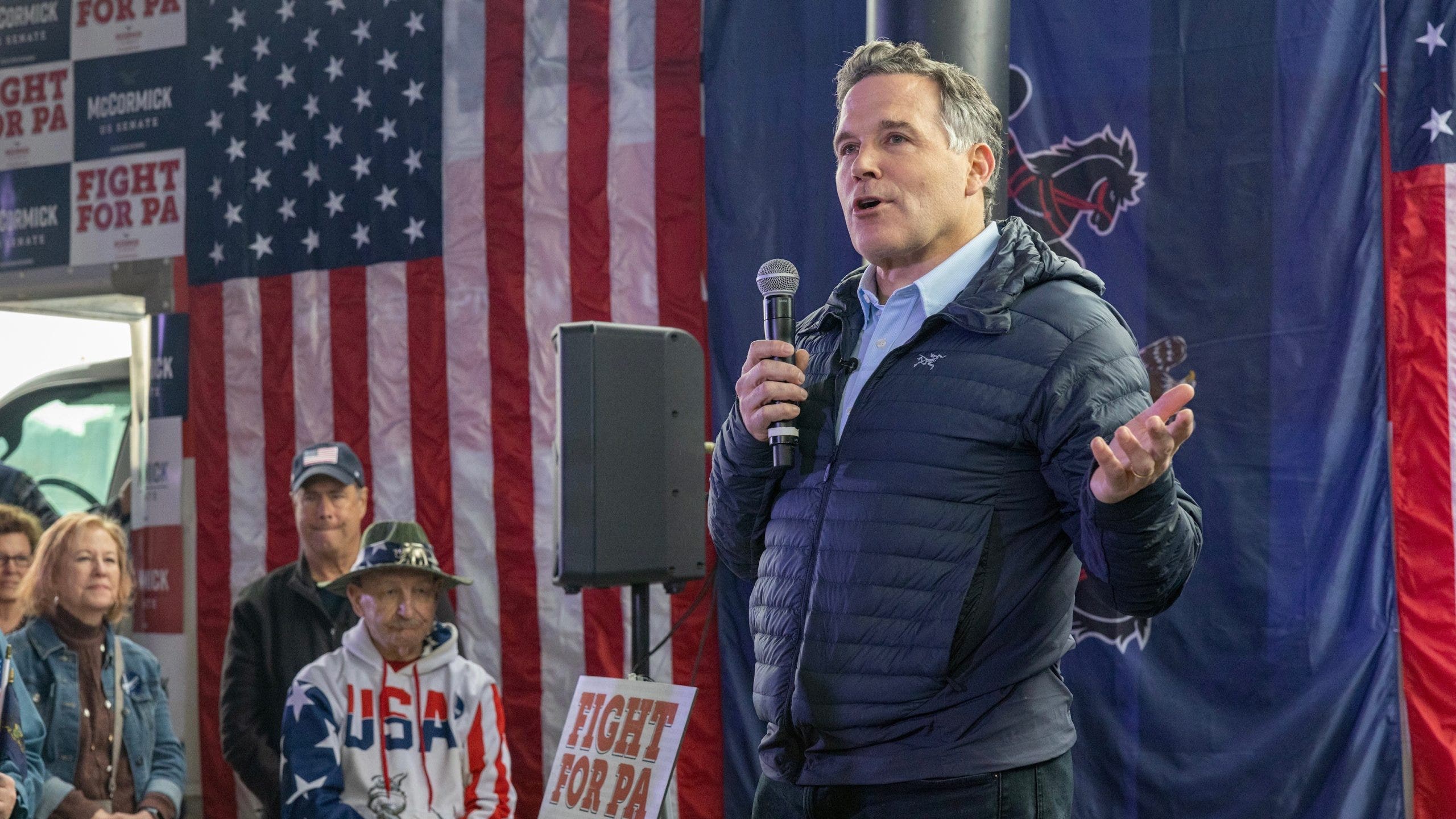World
The EU’s deep-sea dilemma as neighbours plan to mine the seabed
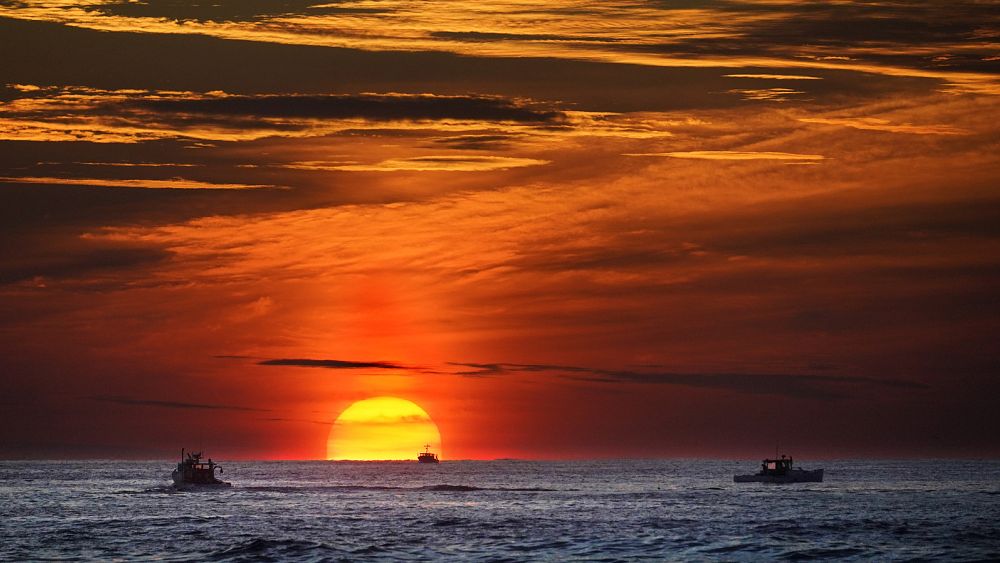
In parts of the ocean so deep that light cannot penetrate, billions of fist-sized rocks called polymetallic nodules containing copper, nickel, iron, manganese, cobalt and rare earths lace the seabed.
These raw materials are critical for the EU economy, as they are used to manufacture batteries for electric vehicles, solar panels and semiconductors.
The bloc is now racing to avoid shortages by opening up new supply chains, but many EU countries refuse to mine the ocean floor.
Scientists know very little about the unique ecosystems that depend on these swaths of nodules to survive — mankind has invested more in exploring the depths of space than the depths of the ocean.
Now, a geopolitical race to mine the seabed using unproven technology is worrying conservationists – who warn of irreversible damage to marine ecosystems – and dividing world leaders.
Calls for a precautionary pause
The European Commission and the European Parliament are leading calls for an international moratorium on deep-sea mining until scientific gaps are filled.
“Our concerns relate to the protection and restoration of the marine environment, deep-sea biodiversity and the mitigation of climate change,” a European Commission spokesperson told Euronews.
The impact of pollution and biodiversity loss on fisheries and seafood supply is also a concern.
The EU has invested more than €80 million in research projects related to deep-sea mining, with findings highlighting considerable knowledge gaps.
“Long-term studies are needed to gauge the full range of impacts of mining on benthic and deep ocean biodiversity and ecosystem services and their potential for recovery,” the spokesperson said.
Big industry names have also called for a moratorium, with BMW, Volvo, Google and Samsung vowing not to buy metals sourced from the ocean floor.
But only seven EU member states – Spain, France, Germany, Sweden, Ireland, Finland and Portugal – have so far openly called for a mining pause.
A fragmented EU stance
Some member states are breaking ranks with the EU position. Belgium is preparing legislation to define under which conditions the government could “sponsor the exploitation of a company at some point in the future,” according to its Foreign Affairs ministry.
Representatives from Belgian exploitation companies have accompanied the country’s government during the negotiations of the International Seabed Authority (ISA), a little-known intergovernmental body responsible for regulating deep-sea mining in international waters.
This lack of EU unanimity undermines efforts for a moratorium.
“During the ISA meetings, there is no EU spokesperson taking the floor on behalf of all EU member states. Instead, member states speak to their own positions,” according to Klaudija Cremers, Research Fellow for International Ocean Governance at IDDRI.
Belgium’s Global Sea Mineral Resources NV, as well as government institutes in France, Germany and Poland all hold ISA exploration licenses, designed to learn more about the resources
In July, the ISA failed to give a green light to exploitation permits during crunch negotiations. A legal deadline triggered two years earlier by the small Pacific state of Nauru leaves an open loophole that states could use to push ahead with mining activities.
EU neighbours race to the bottom
Norway could become the first country in the world to extract metals from the ocean floor. A government decision to open up 281,000 square kms – an area almost the size of Italy – to seabed mining will be voted on in the Norwegian Parliament this autumn.
While Norway claims extraction will be sustainable and responsible, environmentalists warn that, if passed by parliament, it will be one of the worst environmental decisions ever made by the country.
The UK has also refused to support a moratorium on deep-sea mining. A group of opposition MPs called on Prime Minister Rishi Sunak to back a moratorium in July.
“Voices against deep sea mining have never been so loud, but a handful of governments like Norway and the UK are holding out to deep sea mining interests,” Haldis Tjeldflaat Helle, Campaigner at Greenpeace Nordic, said.
“To unleash deep sea mining in the Arctic would be criminal. Norway talks about leading the world, but clearly didn’t get the memo about the growing opposition to this destructive industry,” he added.
Potential for legal disputes
Norway’s proposed area for mining includes the archipelago of Svalbard in the Arctic, an area under Norwegian sovereignty but where other nations including the EU and UK have historically enjoyed equal rights to commercial activity in its waters.
According to the 1920 Svalbard Treaty, co-signing nations should have equal access in Svalbard for fishing as well as industrial, mining, and commercial operations.
If EU calls for a pause on deep-sea mining are not heard, its neighbours could go ahead with exploitation in areas where it could claim rights to resources.
“There is an active debate between European nations and Norway over the rights to the continental shelf around Svalbard,” a spokesperson for the Deep Sea Conservation Coalition, an alliance of international organisations, said. “Norway’s intention to open the area to deep-sea mining will add disputes over the need to protect the sensitive marine environment from such destructive activities.”
“It is deeply problematic that the Norwegian government is proposing to open the Arctic to environmental devastation while countries at the ISA are still negotiating whether deep sea mining should take place at all,” according to Greenpeace’s Helle.
“They are basically gambling with international law and jeopardising its relationship with neighbouring countries and its reputation as an ocean state,” he added.
The European Commission said it is engaging with Norway in relevant fora, “in order to ensure the protection of the ecosystem from harmful activities.”

World
Biden Set to Deliver Commencement at West Point on Saturday
World
Israel forced to work on Jewish Sabbath as UN court judge calls out colleagues in scathing dissent
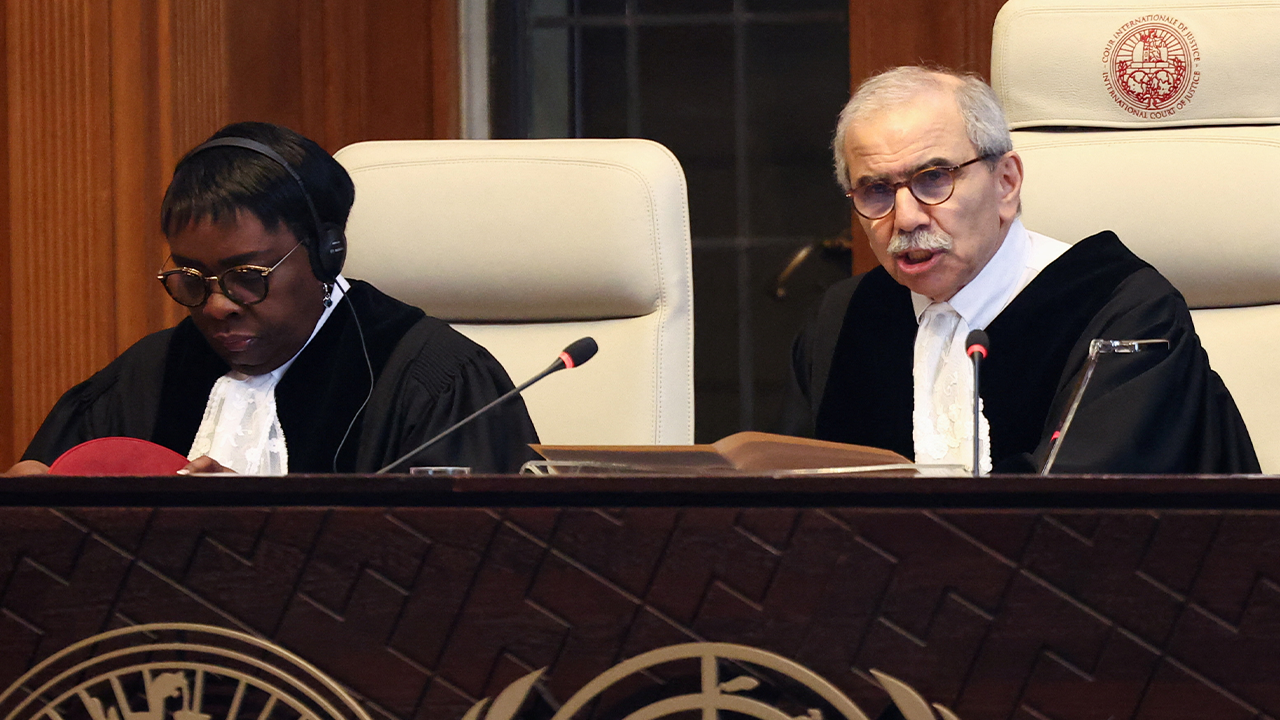
A U.N. International Court of Justice (ICJ) chided her colleagues on Friday for requiring Israel to work on the Sabbath when responding to a case brought by South Africa to the ICJ under the Genocide Convention.
The dissenting opinion from ICJ Vice President Julia Sebutinde came in a nine-page document, issued in response to the court’s order for Israel to end its military offensive in the southern city of Rafah in Gaza. That ruling stems from South Africa’s request, which accuses Israel of genocide in its ongoing war with Hamas terrorists in Gaza. Israel has vehemently denied these charges.
Among her disagreements with her colleagues, Sebutinde, who is Ugandan, objected to the court’s handling of South Africa’s request, and the “incidental oral hearings.”
Judge Nawaf Salam, president of the International Court of Justice (ICJ), speaks next to Judge Julia Sebutinde, vice president of the ICJ, at the start of a hearing in The Hague Netherlands, on May 16. (Reuters/Yves Herman)
“In my view, the Court should have consented to Israel’s request to postpone the oral hearings to the following week to allow for Israel to have sufficient time to fully respond to South Africa’s Request and engage counsel,” Sebutinde wrote, noting that the Israel’s preferred Counsel was not available on the dates scheduled by the Court.
“It is also regrettable that Israel was required to respond to a question posed by a Member of the Court over the Jewish Sabbath,” Sebutinde said. “The Court’s decision in this respect bear upon the procedural equality between the Parties and the good administration of justice by the Court.”
Sebutinde also argued that the court’s initial ruling “does not entirely prohibit the Israeli military from operating in Rafah.” She also urged the court, to maintain its judicial integrity, to “avoid reacting to every shift in the conflict and refrain from micromanaging the hostilities in the Gaza Strip, including Rafah.”
LINDSEY GRAHAM TELLS UN INTERNATIONAL COURT OF JUSTICE TO ‘GO TO HELL’ OVER RULING AGAINST ISRAEL
Sebutinde clarified that the ruling operates to “partially restrict Israel’s offensive in Rafah to the extent it implicates rights under the Genocide Convention.” She warned that the ruling is “susceptible to ambiguity and could be misunderstood or misconstrued as ordering an indefinite, unilateral cease-fire, thereby exemplifying an untenable overreach on the part of the Court.”
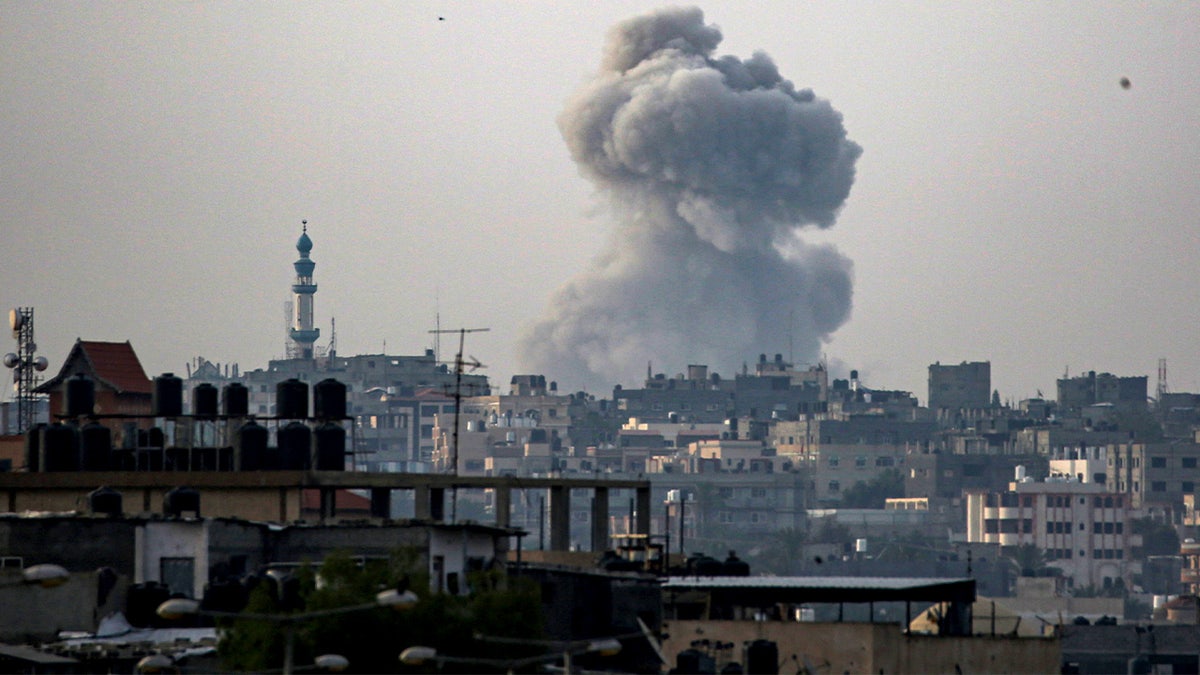
Smoke billows during Israeli bombardment in eastern Rafah in the southern Gaza Strip on May 19, amid the ongoing conflict between Israel and the Palestinian militant group Hamas. (AFP via Getty Images)
The judges’ ruling on Friday stopped short of ordering a full cease-fire across the entire Palestinian territory, and Israel is unlikely to comply with the court’s ruling. Friday’s decision comes just days after Norway, Ireland, and Spain said they would recognize the Palestinian state, and the chief prosecutor of a separate international court sought arrest warrants for Israeli Prime Minister Benjamin Netanyahu as well as leaders of Hamas.
Since Oct. 7, Israeli bombardments and ground offensives in Gaza have killed more than 35,000 Palestinians, according to the Hamas-run Ministry of Health, which doesn’t distinguish between combatants and civilians.
Israel launched its war in Gaza after Hamas’ Oct. 7 attack in which militants stormed into southern Israel, killed about 1,200 people — mostly civilians — and abducted about 250. Israel says around 100 hostages are still captive in Gaza, along with the bodies of around 30 more.
World
At least 24 people, including children, killed in a fire in India’s Gujarat

The fire broke out at a family entertainment venue in Gujarat’s Rajkot district.
At least 24 people, including many children, have died in a fire that broke out at a family entertainment venue in the western Indian state of Gujarat, a government official said.
With rescue efforts continuing at the scene on Saturday evening in the Rajkot district, the local mayor told the Reuters news agency that the death toll was expected to rise.
“Our focus is on rescue operations and saving lives. We will ensure strict action is taken against the people who are responsible for this incident,” Mayor Nayana Pedhadiya said.
More than 300 people were in the two-storey structure at the TRP amusement and theme park when the blaze broke out as it was a holiday weekend, Rajkot fire officer Ilesh Kher told reporters.
“People got trapped as a temporary structure at the facility collapsed near the entrance, making it difficult for the people to come out,” he said.
“The flames spread rapidly because of its flammable material,” he added.
Television images showed a massive fire engulfing the TRP game zone and thick clouds of smoke emanating from the site. The entire structure was gutted in the blaze.
A police official at the local civil hospital said some of the bodies were also charred beyond recognition.
Meanwhile, the district’s chief fire officer, IV Kher, said firefighters had almost brought the fire under control.
“The cause of the fire is yet to be ascertained,” he told Reuters.
Gujarat Chief Minster Bhupendra Patel said that an investigation into the incident had been handed to a Special Investigation Team (SIT), and television reports added that two people had been detained by Rajkot police in connection with the incident.
Gujarat is the home state of Indian Prime Minister Narendra Modi.
In a post on the social media platform X, Modi said that he was “extremely distressed by the fire mishap in Rajkot” and added that the local administration was working to provide assistance to those affected.
-

 News1 week ago
News1 week agoHow a migrant aid group got caught up in a right-wing social media thread : Consider This from NPR
-

 Movie Reviews1 week ago
Movie Reviews1 week agoIs Coppola’s $120M ‘Megalopolis’ ‘bafflingly shallow’ or ‘remarkably sincere’? Critics can’t tell
-

 Movie Reviews1 week ago
Movie Reviews1 week agoGuruvayoor Ambalanadayil movie review: This Prithviraj Sukumaran, Basil Joseph-starrer is a total laugh riot
-

 World1 week ago
World1 week agoTaiwan grapples with divisive history as new president prepares for power
-

 Politics1 week ago
Politics1 week agoSouthern border migrant encounters decrease slightly but gotaways still surge under Biden
-

 World1 week ago
World1 week agoSlovakia PM Robert Fico in ‘very serious’ condition after being shot
-

 Crypto1 week ago
Crypto1 week agoVoice of Web3 by Coingape : Showcasing India’s Cryptocurrency Potential
-

 News1 week ago
News1 week agoThe NFL responds after a player urges female college graduates to become homemakers



:quality(70)/cloudfront-us-east-1.images.arcpublishing.com/adn/6N5ZSYX4GNC2NDTUJDJUB6P3OI.jpg)
